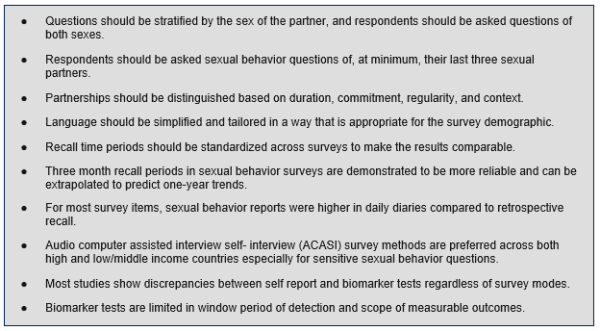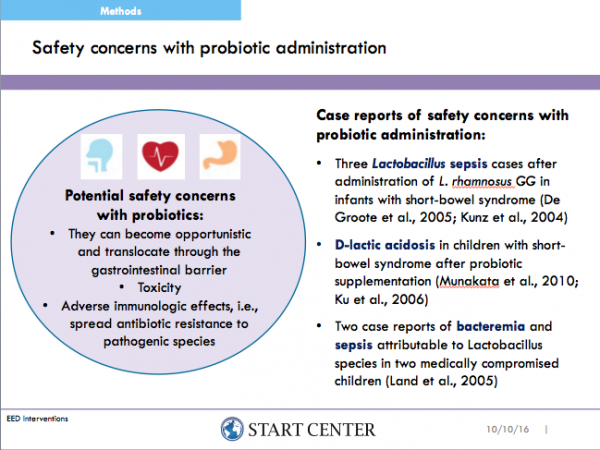
Surveys related to sexual, reproductive, and population health of course frequently include questions about sexual behavior. However, the comparability of responses regarding sexual behavior is limited due to inconsistencies in the types of questions asked and how the measures are designed and/or asked. Furthermore, commonly used measures of behavior often do not align with the essential inputs required for dynamic models of sexually transmitted infections. This lack of alignment hampers the development of models that accurately reflect the network structure and dynamics responsible for observed epidemics in specific contexts.
To inform conversations between the Bill & Melinda Gates Foundation (BMGF) and grantees on key data elements to include in questionnaires, and to increase the utility of specific measures for data analysts and modelers, The START center was engaged to evaluate the comparability of sexual and reproductive health survey questions. Thirteen BMGF funded surveys and ten external surveys were reviewed.
In collaboration with BMGF modelers and data analysts, six construct categories were established: Sexual Behavior, Sexual Networks, STIs & HIV, Pregnancy, Empowerment & knowledge, and Risk & Violence. These construct categories were used to understand how BMGF surveys compare to external surveys, illuminating areas of effective coverage and areas for potential development. In review of the 23 surveys, the START Team identified various comparability issues across surveys, including:
- Inconsistent Scale of Measurement
- Categorical (1, 2~10, 11~20) vs. Continuous Counting
- Differences in Recall Period
- It is difficult to extrapolate time periods when margins of measurement are either too wide (“In the past 12 months,…”) or too narrow (“In the past week,…”)
- Inconsistent Response Options
- Providing extensive response options versus limited options
- Inconsistent Construct Facets
- Although some constructs are intended to capture a wide range of behaviors (Such as “high risk sex”), surveys would primarily ask about a single facet of this construct while excluding other behaviors within the construct (such as including exchange sex and excluding drug or alcohol use)
- Inconsistent Definitions of Sex
- Sex in general versus specific types of sex
- Scarcity of Abstract Constructs
- Certain constructs, such as “Trust in Partners,” are difficult to measure and remain scarce
Ultimately, the START team developed a set of recommendations for sexual behavior measurement in surveys. A list of key findings are as follows:







